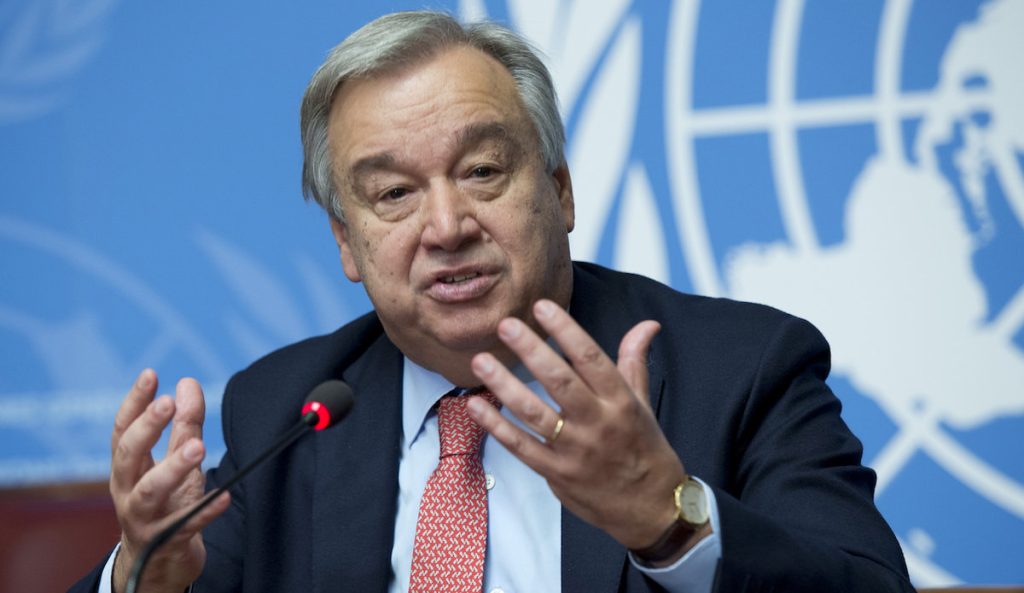The United Nations Secretary-General has condemned the Iranian strikes on Israel after previously being banned from the country due to his initial remarks.
In a speech to the UN Security Council, António Guterres emphasised that it is crucial to put an end to what he described as the “deadly cycle of tit-for-tat violence” in the Middle East.
Earlier, Israel’s Foreign Minister Israel Katz labeled Guterres as persona non grata, referring to him as an “anti-Israel secretary-general who supports terrorists.”
These comments came in response to Guterres’s earlier call for a ceasefire, which did not explicitly mention the Iranian attacks.

Addressing the council, the UN secretary general said he had condemned the attack in April, and “as should have been obvious yesterday in the context of the condemnation I expressed, I again strongly condemn yesterday’s massive missile attack by Iran on Israel”.
“These attacks paradoxically do not seem to support the cause of the Palestinian people, or reduce their suffering,” he said.
He also criticized Israel’s actions in the region, describing the military campaign in Gaza as “the most deadly and destructive military campaign in my years as secretary-general.”
On Tuesday, Iran launched approximately 180 ballistic missiles into Israel, with Israeli forces reporting that most of them were intercepted.
In a statement following the attack on social media platform X (formerly Twitter), Guterres condemned “the broadening of the Middle East conflict with escalation after escalation.”
Before Guterres addressed the UN Security Council, Katz issued a statement asserting that anyone who “cannot unequivocally condemn Iran’s heinous attack on Israel does not deserve to step foot on Israeli soil.”
He specifically criticized Guterres for “his anti-Israel policy since the beginning of the war.”
Tuesday’s missile launch by Iran is the latest escalation in a series of events that began nearly a year ago with Hamas’s attacks on Israel and has recently included increased hostilities between Iran-backed Hezbollah and Israel.
Israel initiated a military campaign in Gaza in response to the unprecedented assault on southern Israel by Hamas gunmen on October 7, which resulted in approximately 1,200 deaths and 251 hostages taken.
Since that attack, the military campaign in Gaza has reportedly resulted in a total of 41,689 deaths, according to the Hamas-run health ministry.
Throughout the conflict, there have been several clashes between Israel and the United Nations regarding the situation in Gaza and the West Bank.
Additionally, there has been tension between Israel and the UN concerning the role of the UN agency for Palestinian refugees, UNRWA.
In January, Israel claimed that several staff members of the agency had been involved in the October 7 attacks.
In response, UNRWA initiated an investigation, leading to some of its international funders withdrawing their support, although they later reinstated it. In August, nine staff members were dismissed for potential involvement in the attacks.
During the conflict, UNRWA has criticized Israel for airstrikes in Gaza that have resulted in the deaths of its staff members.


